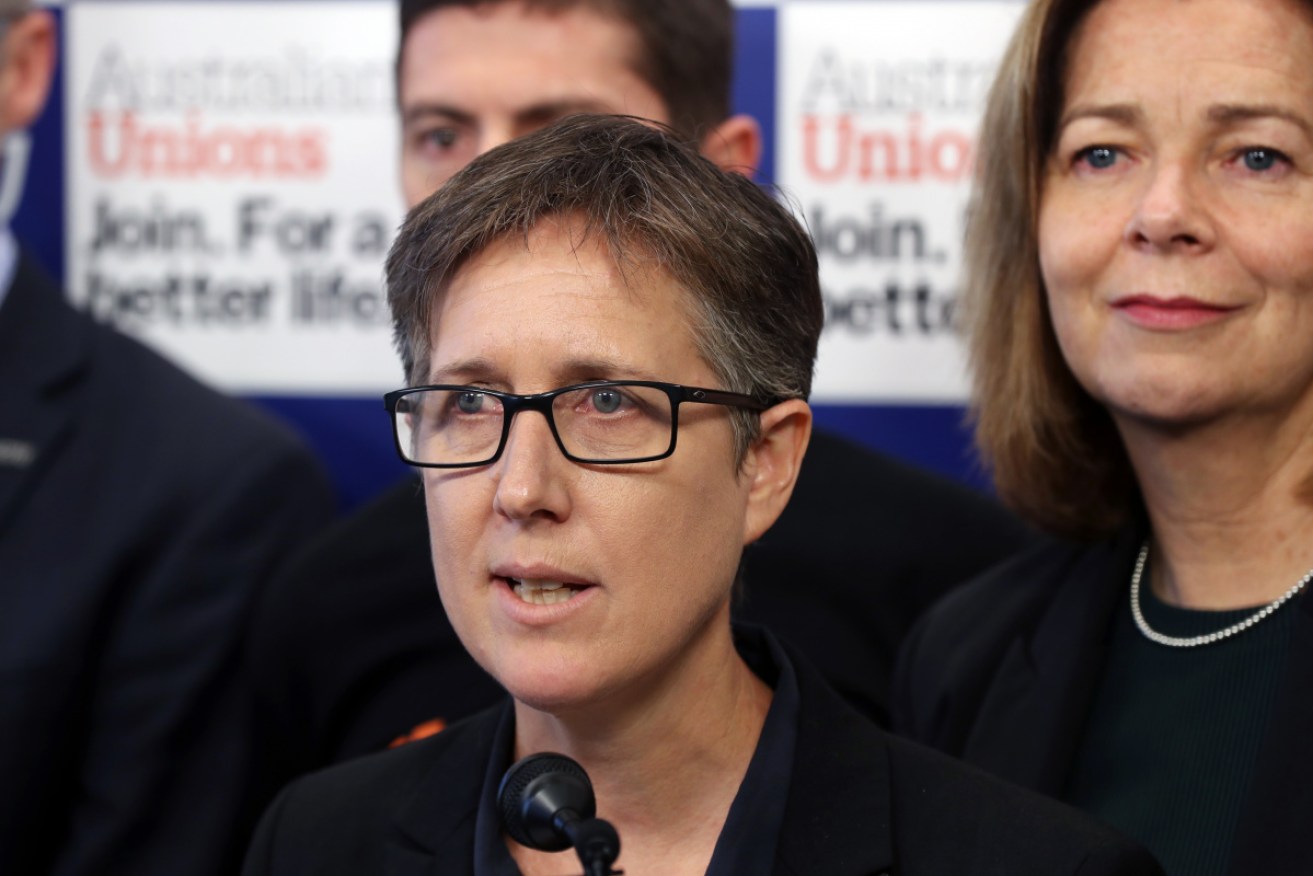ACTU calls on workers to strike to demand end to ‘incomes recession’


ACTU secretary Sally McManus says she expects tens of thousands of workers to join the April strike day. Photo: AAP
More than 250,000 workers will walk off the job on April 10, calling for an end to the “incomes recession” and targeting the Prime Minister Scott Morrison.
Australian Council of Trade Unions secretary Sally McManus announced the industrial action on Thursday, predicting anti-government protests across Australia.
The April 10 date is likely to coincide with the official start of the election campaign, which Labor leader Bill Shorten plans to fight as a “referendum on wages”.
We’re taking it to the streets. Be there! #changetherules#changethegovernment https://t.co/a3krUo8YVE
— Sally McManus (@sallymcmanus) March 7, 2019
The Opposition Leader delivered his strongest signal yet on Wednesday that a Labor government would to lift the minimum wage and strengthen the power of workers and unions in enterprise bargaining.
“I actually think wages growth is too low – it’s unhelpfully low,” he told a business forum.
“In terms of the minimum wage, it’s about $18.93 for an adult. I don’t know how many of you are living on $18.93 an hour. If you don’t want to live on it, why do we expect everyone else to live on it?”
On Thursday, Ms McManus said wages were going backwards.
“We are suffering an incomes recession,” she said.
Our wages are going backwards because of inaction by our government. Inaction about the minimum wage, inaction about penalty rates – in fact, they support the cutting of penalty rates.
“If we do not take action as a country now, we will end up Americanising our society. We will end up in a situation where working people have to work two, three, four jobs to support themselves and their families.”
The latest deployment of the recession word, this time by Ms McManus, follows the release of the national gross domestic product data on Wednesday that was described by some commentators as showing a “per capita recession”.
That’s not the technical definition of a recession, which remains two consecutive quarters of negative economic growth.
But if does reflect the fact that if you take Australia’s population growth out of the GDP equation, the economy actually shrank for a second consecutive quarter in the three months to December.
On Thursday, Mr Morrison described the term “per capita recession” as “made up.”
“That’s not a term that any economist has any recognition of so I’m not going to engage in the made-up statistics that the Labor Party are talking about,” he said.
“These per capita outcomes we saw under the previous Labor government and under the Howard government on a number of occasions.”
Mr Morrison’s claim is not correct: The last per capita recession result was in 2006, during the Howard years and not during the Rudd-Gillard government.
Meanwhile, Mr Shorten also responded on Thursday to reports that six Nationals MPs want to force Mr Morrison to put his “big stick” energy plan to Parliament before it rises for the election.
The government is keen to avoid that because it does not believe it has the numbers on the floor of Parliament to get the deal through.
“It would almost be a joke, except that energy prices are absolutely crippling Australian business and Australian household budgets,” Mr Shorten said.
“We have an energy crisis problem. We have a wages problem.”
In Perth on Thursday, Mr Morrison again warned that Labor’s proposed tax changes would hurt wages.
“Wages growth will come with economic growth,” he said.
“Wages growth won’t come with higher taxes, which is what Bill Shorten is proposing.”








